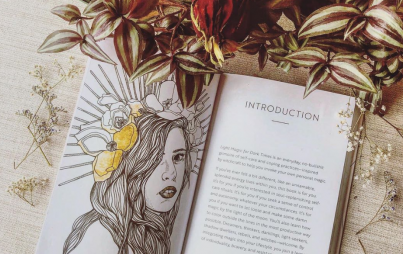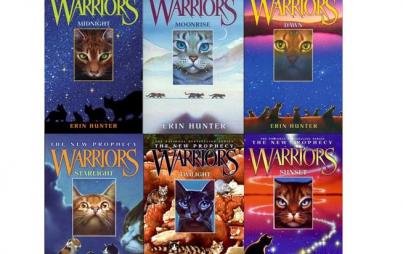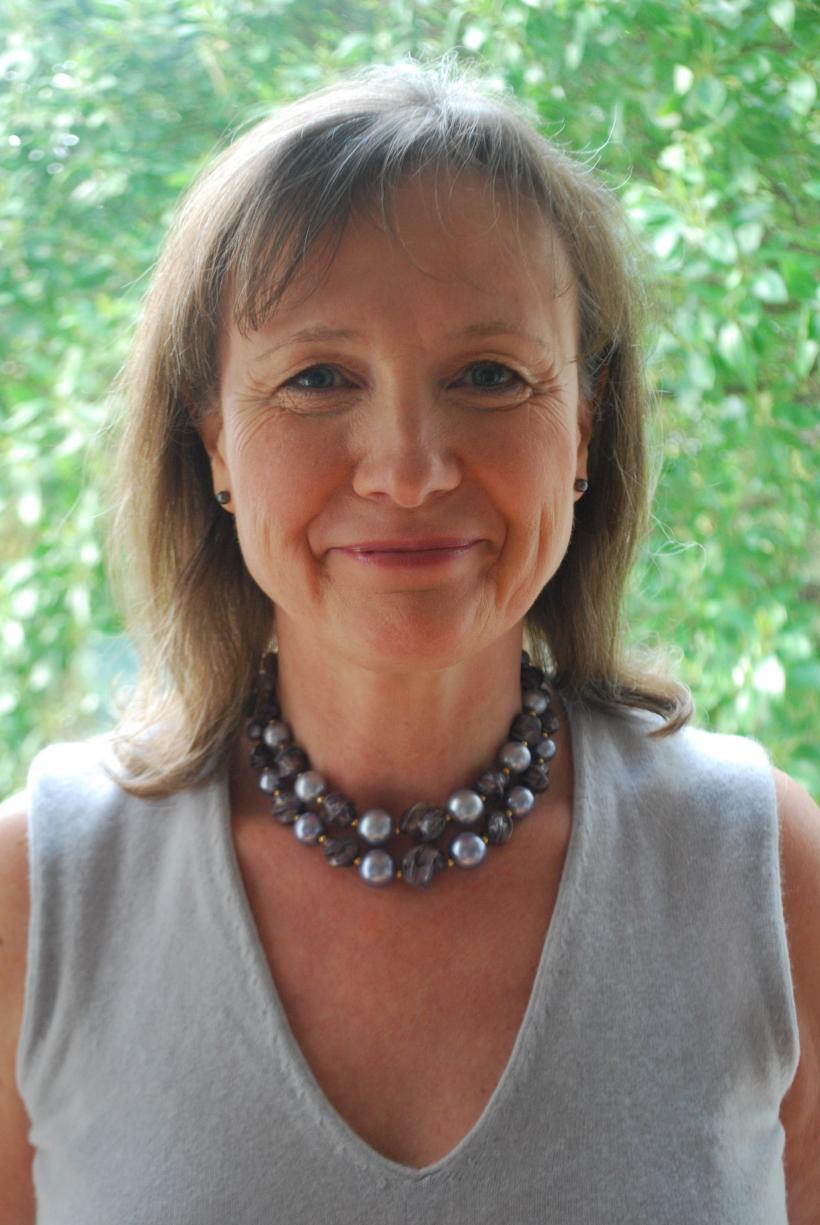
When listening to Christine Carswell talk about books, it doesn't take long to realize that the future of publishing is very safe. The publisher of Chronicle Books—the independent, San Francisco-based company of global renown—is as pure and passionate a book aficionado as they come. Carswell's love for great stories transcends which physical form they take; though she remains an impassioned advocate for the visceral, tactile thrill of holding a book in your hands, she's also keen on the possibilities for digital innovation to transform the industry for the better.
As for what she and Chronicle like to fill pages with, the list runs deep. Subjects range from the Beatles (Carswell was the editor for the smash Beatles Anthology) to childhood wonder to Game of Thrones to the power of baking. And as she'll be the first to tell you, topics like marijuana and sex also very much belong in the mix.
We talked with Carswell, who began her long publishing career in the UK and recently celebrated 20 years with Chronicle, about the future of publishing, what it's like to lead a mass Beatles singalong in the heart of San Francisco—and the impossible task of selecting her favorite tomes of all time.
Tell us about what brought you to Chronicle Books. What were up to before—and what drew you to this company?
What brought me to Chronicle Books was a chance encounter at the fish counter at the local grocery store. I'd known quite a few Chronicle people before I came to work here. In fact, when I was moving to San Francisco from the UK as a blushing bride, I was first introduced to the company through a colleague in London, who was a friend of Nion McEvoy, then editor-in-chief of Chronicle Books and now its owner. And one of those other Chronicle people I knew was Jack Jensen. Once a sales rep for the company, he was then the publisher of Chronicle Books and is now its president. Being an angler, Jack knows his fish. So it was a particularly propitious meeting. One conversation led to another . . .
Telling you about Nion and Jack (and their job titles) has a lot to do with why I was drawn to Chronicle Books. It's a place of absolutely great people, people of warmth and decency, of good spirit and inspiring creativity. I was lucky enough to know that before I came to work here, and it has been my experience ever since. Also, it's a place that nurtures talent. When I was hired, we didn't have a mission statement. But even then, I could tell this was a company that was, as our mission statement begins, "Inspired by the enduring magic and importance of books . . . " That's the impulse that has driven my entire professional life. I also worked in publishing back in London, mmm, decades ago, principally for Chatto & Windus and The Hogarth Press, now part of Penguin Random House. It was a different kind of publishing: more literary, not so many beautifully illustrated books. Except I remember at Chatto we were publishing The John Lennon Family Album, and I asked the editor, "Who's publishing it in the U.S.?" "Oh, somebody we've never heard of," he replied. Well, I'll give you three guesses what book I found in the Chronicle archive!
What's a snapshot of a day in your life?
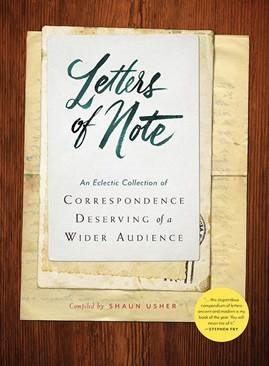 My primary responsibility is to help my colleagues succeed. That means I try to answer a lot of questions—and ask quite a few too—validate opinions, point people in new directions, open doors. I seek to listen, but I (kind of) regretfully acknowledge that I'm a bit of pontificator-in-chief! The role of publisher varies from publishing house to publishing house. At Chronicle Books, it means having direct responsibility for our design and editorial, managing editorial and production departments. And for ensuring that what we're publishing remains surprising and delightful for our community. And that the people who are creating such exceptional publishing—our creative talent as well as Chroniclers—are thriving.
My primary responsibility is to help my colleagues succeed. That means I try to answer a lot of questions—and ask quite a few too—validate opinions, point people in new directions, open doors. I seek to listen, but I (kind of) regretfully acknowledge that I'm a bit of pontificator-in-chief! The role of publisher varies from publishing house to publishing house. At Chronicle Books, it means having direct responsibility for our design and editorial, managing editorial and production departments. And for ensuring that what we're publishing remains surprising and delightful for our community. And that the people who are creating such exceptional publishing—our creative talent as well as Chroniclers—are thriving.
It also means ensuring that the business as a whole will flourish through what we choose to publish and how we choose to publish it and where it might reach our readers and consumers. Even though I learned early on that I loved to grow a business as much as to help craft a book, I still get to stick my editorial oar in from time to time, too. How gratifying it is to help nurture an author and/or illustrator's vision! Most recently I edited Letters of Note: An Eclectic Collection of Correspondence Deserving of a Wider Audience. It's an extraordinarily rewarding book. Dip in, dip out, read on—such moving, jaw-dropping and laugh-out-loud moments of correspondence.
What accomplishments during your time at Chronicle are you most proud of?
My proudest accomplishment not only at Chronicle Books but also of my entire career was publishing The Beatles Anthology by the Beatles. Yes, I'm proud of how successful it was nationally and internationally in sales terms. But that's not why I will never, ever forget its publication and, in particular, the day it launched. What immense pride we took—I still take—in publishing this book! In effect, it's the Beatles' autobiography. Imagine: the Beatles, the band that's played the soundtrack of so many of our lives! No matter our age, we can all sing those songs. 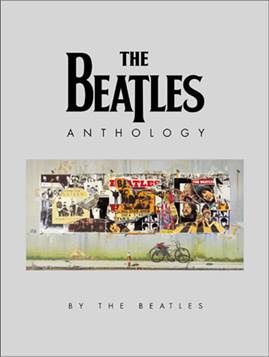
Just last year I was at Outside Lands here in San Francisco and Paul McCartney put on one of his inimitable shows. I was surrounded by grannies and hipsters, parents and kids, many of them linked arm in arm, and everyone was dancing and grinning and singing along with those beloved songs. But let us return to October 5, 2000, when Chronicle Books published The Beatles Anthology. Few people had mobile phones then. Smartphones? Social media? Anyway, we got it into our heads to have a lunchtime singalong of "All You Need Is Love" in Union Square in downtown San Francisco. We got the word out via a local radio station and the sheer good humor of those who worked at Chronicle Books. I remember getting to work that day at about 7:30 am and already many of my colleagues were assembled in a conference room, there to blow up helium balloons and gather up postcards announcing this singalong. They then departed, every one wearing a Beatles Anthology T-shirt, to accost poor strangers, groggy-eyed without their coffee, as they emerged from public transportation systems, encouraging them to come to the singalong at lunchtime. And come they did! Union Square was packed. Together we sang "All You Need Is Love." We believed it so much, we sang it twice.
Chronicle is known for being unafraid of publishing niche books, including works covering sex and pot. Why do you think it's important to cover these kinds of unconventional topics?
Oh, oh, we beg to differ. Sex . . . niche? Pot . . . unconventional? Let us entertain you!
Chronicle also has a robust children's publishing department. What value do books for children and young adults provide?
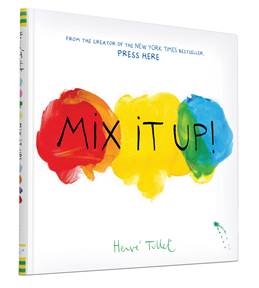 Any of us who remember snuggling up with our moms or dads on the sofa leafing through a picture book, hurrying home from the library with a new read, or burrowing under the covers with a flashlight late into the night (unfortunately, I'm now having a teen flashback to reading The Exorcist in such circumstances—terrifying!) can attest to the value of books in a young person's life. From developing motor skills to increasing vocabulary and intelligence; from deepening personal bonds to promoting empathy by exposure to characters far different from your own; from learning fascinating facts to enriching the imagination; from promoting a lifelong love of learning to making you laugh and cry. What a gift is given in a book!
Any of us who remember snuggling up with our moms or dads on the sofa leafing through a picture book, hurrying home from the library with a new read, or burrowing under the covers with a flashlight late into the night (unfortunately, I'm now having a teen flashback to reading The Exorcist in such circumstances—terrifying!) can attest to the value of books in a young person's life. From developing motor skills to increasing vocabulary and intelligence; from deepening personal bonds to promoting empathy by exposure to characters far different from your own; from learning fascinating facts to enriching the imagination; from promoting a lifelong love of learning to making you laugh and cry. What a gift is given in a book!
Both of these just-released children's books invite exploration. Mix It Up! is like playing with a paint palette on the page (with none of the mess). And Flashlight, with its cut pages and gorgeous artwork, takes the reader on a nighttime journey through nature without a single word.
There's been some chatter in this tech-driven age about traditional books dying. What do you have to say to people who believe this?
In polite company, I say, "Dear Human Being, I believe you are misguided." We obviously care deeply about the physical form of the paper book at Chronicle. We take pride when we hear people say, "I knew it was a Chronicle book before I picked it up" because singular thoughtfulness and vivacity went into presenting the author or artist's work through our design and production as well as editorial creativity. Bookmaking is, in itself, a wonderful craft. (Actually, that's true for us at Chronicle whether it's a paper book or a digital one.) And holding a physical book in your hand . . . Well, there's nothing quite like that sensory experience. And I love sharing a physical book I've relished and giving books as presents, don't you? The pleasure that builds on the pleasure of sharing a book—that's a distinctly physical, tactile and emotionally resonant thing, I think. But, if truth be told, I don't really care about the form in which readers are moved by story. In the grand scheme of things, the printed book isn't that old. So let's not wax too nostalgic. I love the convenience of reading certain types of stories on my iPad. So, really, I care most that people read. For reasons that are likely obvious from all that I've said before.
Where I do get a bit worried is that the physical book might become a quaint artifact, a privilege of the elite, as it has been in the past, because consumers are gravitating more online. In other words, I'm less concerned about a paper (or quasi-paper) rendition of the book dying as a result of a tech-driven form than I am about tech-driven commercialism. I adore that the Internet brings the joy of books to those who might otherwise not have access to them. But it needs to flourish alongside independent bookshops, libraries, well-managed chain bookstores. I also adore that you can see books alongside frocks and candles and sauté pans and baby sleepsuits in specialty shops and department stores; and alongside consumer goods and groceries in big-box retailers. And how great is the value other countries place on the book?
If physical shelf-space diminishes, at least three things will happen: 1) Communities will be impoverished. There we will sit, doing our shopping and chatting online, when we could be out and about greeting our neighbors and friends of an afternoon with an, "Oooh, you've got to read this/does this dress make me look fat?" 2) There will be a schism in the creative class. Which simply isn't OK with me. Goodness knows, I enjoy reading bestsellers. But art has an obligation to the future. Further, those who write and illustrate deserve to be paid properly for their work. It's not just about the love. Money is nice, too. 3) Goods will become more expensive. Because our diversity of retailers will be circumscribed. Oh, oh, I did say "at least three," which brings me back to 4) If all these grim scenarios happen, if shelf space is obliterated, then physical books will become rarified in the hands of the few who can afford them—and a great joy of our culture will be diminished and democratic society impoverished. 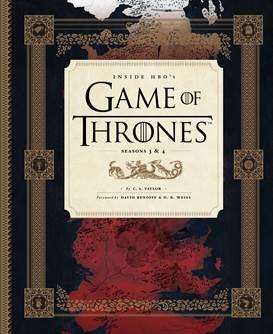
There are a couple more books from our fall list that are beautiful physical objects. What you can't see with Game of Thrones is that it has a poofy cover, with gilt embossing on it, suggestive of an ancient tome. And for a Game of Thrones addict like me, the behind-the-scenes content (prose and visuals) is engrossing.
How is Chronicle adapting to the digital age?
I'm so excited about how digital encourages us to share our work with others and be inspired by others in return. And how it opens our imaginations to the possibilities of what a book is, what a book might be. This offers a wonderful picture for the future. How great it will be to have ever-amplified physical and digital interaction; physical and digital book and story forms; physical and digital buying opportunities! (I could tell you here about all we're doing on the process front of our business to adapt to the digital age, but I suspect I'm in a very enthusiastic audience of one there.)
Have you encountered any resistance as a woman in such a high-powered role?
Although London publishing was considered a bit of an old-boy network when I started out (as a secretary), I was incredibly lucky in seeing women in positions of power in my industry from the get-go. My boss was a woman and the managing director of our company was a woman. So was the head of production. And I consider Carmen Callil, who founded Virago and was a seminal force in publishing, as well as my subsequent boss, to be my mentor and friend. This is complicated because—and I realize this is very fortunate too—I've never had to regard gender as a barrier to success. And yet, publishing, like so many arts, education and social professions, not only has many women in it, it's also rather lower paid than many other industries. Which brings with it inherent gender inequality. So, my perspectives are less refracted through a glass ceiling as they are through a socioeconomic prism: It's not just about gender, but also about race, ethnicity and economic imperatives.
What's your personal favorite book (or books! I realize that's a difficult question).
Difficult? It's impossible! I recently celebrated my 20th anniversary at Chronicle Books and received a gift I've always wanted: an 'Ideal Bookshelf' painting. The problem is, I have to pick seven books for my shelf. It's been three months since I received this gift and I can't even settle on one, never mind seven. I've tried parsing it: books I love; books by women; books I've worked on personally. Misery! Joy! Which would you choose? Help me!

